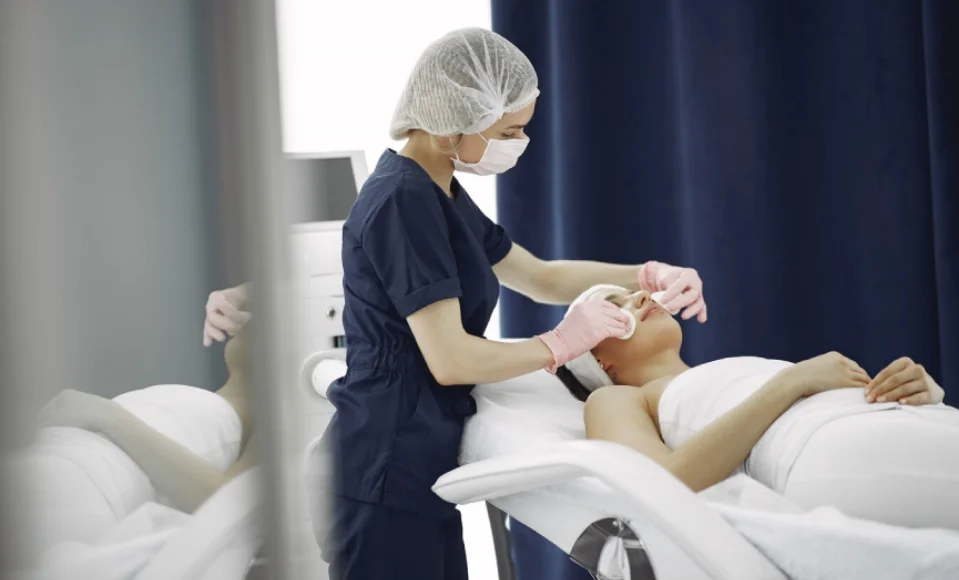What is liposuction?
Liposuction, also known as lipoplasty, is a surgical procedure that involves the removal of excess fat from specific areas of the body. The procedure is typically used to contour the abdomen, hips, thighs, buttocks and other areas where diet and exercise alone have not been successful. Liposuction is a popular cosmetic surgery procedure that can help people achieve a slimmer and more proportional body shape.
What liposuction can treat
Liposuction techniques may be used to reduce localized fat deposits of the:
- Abdomen and waist
- Back
- Calves and ankles
- Chest area
- Face, cheeks, chin and neck
- Hips and buttocks
- Inner knee
- Thighs
- Upper arms
Liposuction can be performed alone or along with other plastic surgery procedures, such as a facelift, breast reduction or a tummy tuck.
Areas that can be addressed with liposuction
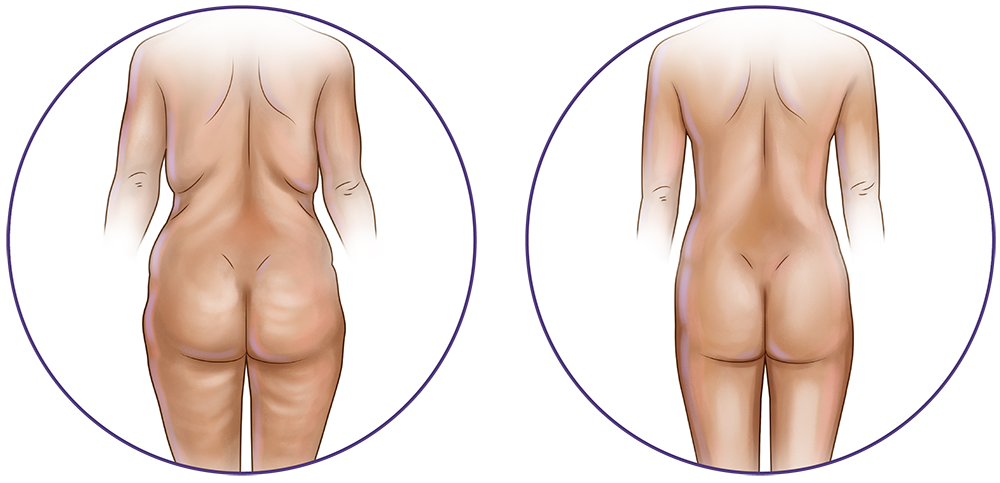
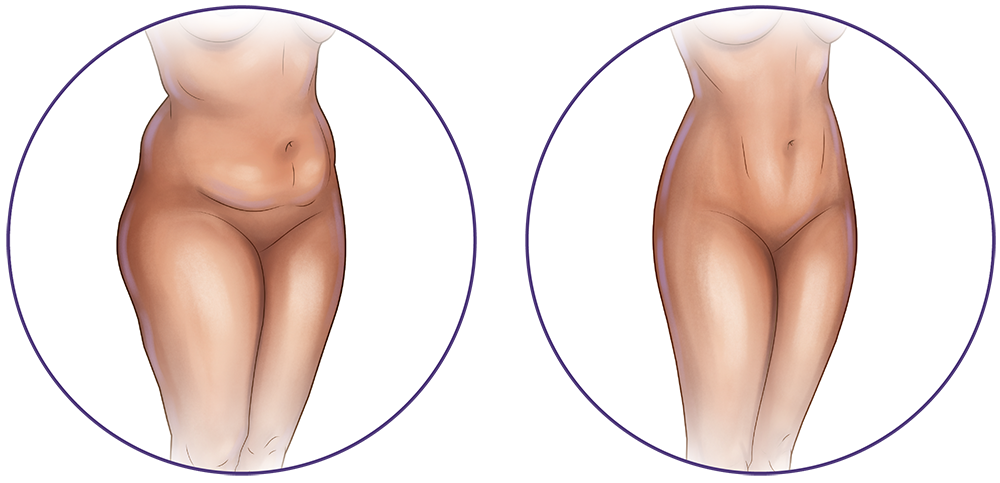
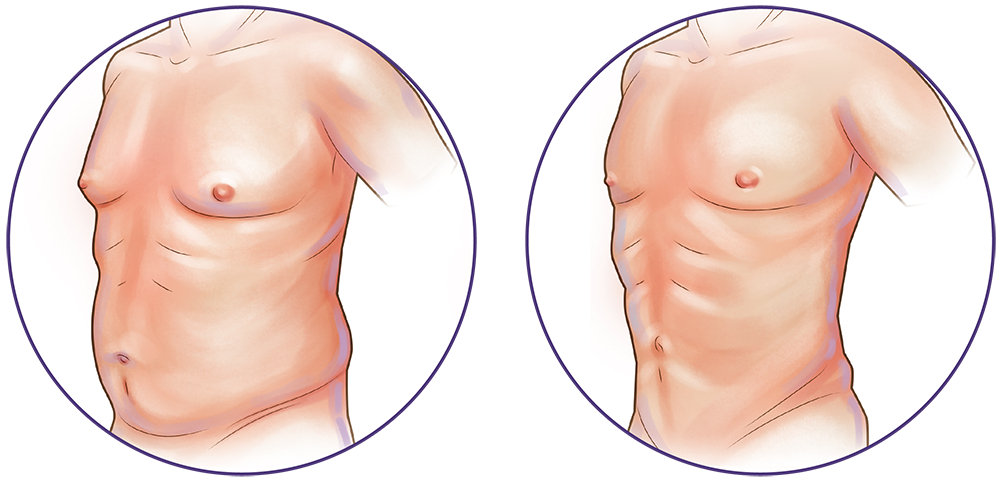
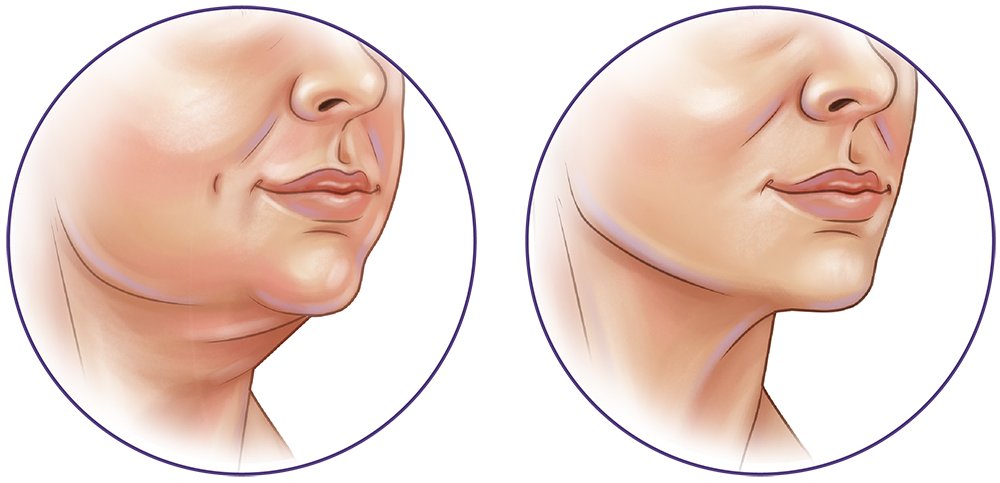
What liposuction can't do
Liposuction is not a treatment for obesity or a substitute for proper diet and exercise. Liposuction works for people of normal weight who have some extra fat. If you have firm, elastic skin, you will have better results. Skin that is soft and thin from stretch marks, weight loss or natural aging will not reshape as well. You may need more surgeries to remove and tighten extra skin. It is also not an effective treatment for cellulite.

FAQ
Frequently Asked Questions
Ideal candidates for liposuction are:
- Adults within 30% of their ideal weight who have firm, elastic skin and good muscle tone
- Healthy individuals who do not have a life-threatening illness or medical conditions that can impair healing
- Nonsmokers/non-vapers
- Individuals with a positive outlook and specific goals in mind for body contouring
The average cost of liposuction is $4,449, according to the latest statistics from the American Society of Plastic Surgeons. This average surgeon's fee is only part of the total price – it does not include anesthesia, operating room facilities or other related expenses. Please consult with your plastic surgeon's office to determine your final fee.
Prices for a liposuction procedures can vary. A surgeon's cost may be based on his or her experience, the type of procedure used and geographic office location.
Most health insurance plans do not cover liposuction or its complications, but many plastic surgeons offer patient financing plans, so be sure to ask.
Liposuction costs may include:
- Anesthesia fees
- Hospital or surgical facility costs
- Medical tests and x-rays
- Post-surgery garments
- Prescriptions for medication
- Surgeon's fee
Your satisfaction involves more than a fee
When choosing a plastic surgeon for liposuction, remember that the surgeon's experience and your comfort with him or her are just as important as the final cost of the surgery.
During your liposuction consultation, be prepared to discuss:
- Your surgical goals
- Medical conditions, drug allergies and medical treatments
- Current medications, vitamins, herbal supplements, alcohol, tobacco and drug use
- Previous surgeries
Your plastic surgeon will also:
- Evaluate your general health status and any preexisting health conditions or risk factors
- Take photographs
- Discuss your liposuction options
- Recommend a course of treatment
- Discuss likely outcomes of liposuction and any risks or potential complications
Be sure to ask your plastic surgeon questions. It's natural to feel some anxiety, whether it's excitement for your anticipated new look or a bit of preoperative stress. Don't be shy about discussing these feelings with your plastic surgeon.
To help, we have prepared a checklist of questions to ask your plastic surgeon that you can take with you to your consultation.
- Are you certified by the American Board of Plastic Surgery?
- Are you a member of the American Society of Plastic Surgeons?
- Were you trained specifically in the field of plastic surgery?
- How many years of plastic surgery training have you had?
- Do you have hospital privileges to perform this procedure? If so, at which hospitals?
- Is the office-based surgical facility accredited by a nationally- or state-recognized accrediting agency, or is it state-licensed or Medicare-certified?
- Am I a good candidate for this procedure?
- What will be expected of me to get the best results?
- Where and how will you perform my procedure?
- What surgical technique is recommended for me?
- How long of a recovery period can I expect, and what kind of help will I need during my recovery?
- What are the risks and complications associated with my procedure?
- How are complications handled?
- What are my options if I am dissatisfied with the outcome?
- Do you have before-and-after photos I can look at for this procedure and what results are reasonable for me?
Liposuction risks can include:
- Anesthesia risks
- Bruising
- Cannula breakage
- Change in skin sensation that may persist
- Damage to deeper structures such asnerves, blood vessels, muscles, lungs and abdominal organs
- Deep vein thrombosis, cardiac and pulmonary complications
- Fluid accumulation
- Infection
- Irregular contours or asymmetries
- Irregular pigmentation
- Need for revision surgery
- Poor wound healing
- Rippling or loose skin, worsening of cellulite
- Swelling
- Thermal burn or heat injury from ultrasound with the ultrasound-assisted lipoplasty technique
All risks will be fully discussed prior to your consent. It is important that you address all your questions directly with your plastic surgeon.
Secondary procedures may sometimes be recommended to reduce excess skin. Special considerations are needed when large amounts – usually more than five liters of fat – are suctioned.
Liposuction surgery may be performed in an accredited outpatient facility, an ambulatory surgical center or a hospital.
Be sure to arrange for someone to drive you to and from surgery and to stay with you for at least the first night following surgery.
Prior to liposuction surgery, you may be asked to:
- Get lab testing or a medical evaluation
- Take certain medications or adjust your current medications
- Stop smoking or vaping*
- Avoid taking aspirin, anti-inflammatory drugs and herbal supplements as they can increase bleeding
*Smoking decreases blood flow, which can impede wound healing and increase the risk of infection.
